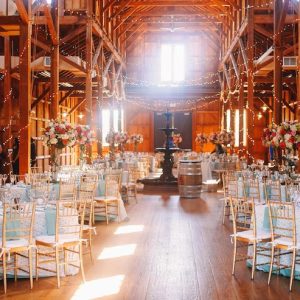When it comes to planning a successful event, one of the most critical decisions you’ll make is selecting the perfect venue. The venue sets the stage for your event and can significantly impact its overall success. Whether you’re organizing a wedding, a corporate conference, a birthday party, or any other type of gathering, here are some key considerations to help you choose the ideal venue:
1. Define Your Event’s Purpose and Requirements
Before you start your search, it’s essential to have a clear understanding of your event’s purpose and requirements. Ask yourself:
What type of event are you planning?
How many guests are you expecting?
What is your budget?
Do you need specific amenities or facilities, such as audiovisual equipment, catering services, or parking space?
Having a well-defined purpose and requirements will narrow down your options and make the decision-making process more manageable.
2. Consider Location
The venue’s location is a crucial factor that can influence attendance and accessibility. Think about your guests’ convenience:
Is the venue easily accessible by public transportation?
Is there ample parking available?
Does it align with the event’s theme or purpose (e.g., a beachfront venue for a tropical wedding)?
Choosing a location that is convenient and suitable for your guests can enhance their overall experience.
3. Size Matters
One of the most common mistakes when choosing a venue is not considering its size carefully. A venue that is too small will leave guests feeling cramped, while a venue that is too large might make your event seem sparse.
Estimate the number of attendees accurately.
Ensure that the venue’s capacity comfortably accommodates your guest list.
Consider the layout and seating arrangements to maximize space utilization.
4. Budget Wisely
Your budget will play a significant role in determining your venue options. Be transparent about your budget from the start, and inquire about any additional costs, such as catering, decoration, or security fees.
Compare prices of different venues and assess what is included in the package.
Negotiate to get the best deal while maintaining quality.
Remember that compromising too much on your budget can affect the overall quality of your event.
5. Amenities and Facilities
Depending on the nature of your event, you may require specific amenities and facilities. Consider factors such as:
Audiovisual equipment for presentations and entertainment.
Catering options, including menu choices and dietary restrictions.
Restrooms and accessibility for disabled guests.
Outdoor spaces for a breath of fresh air.
Make a list of your event’s necessities and ensure the venue can provide or accommodate them.
6. Ambiance and Style
The ambiance and style of the venue should align with your event’s theme and aesthetics. It’s essential to visit potential venues in person to get a feel for their atmosphere:
Evaluate the decor and lighting options.
Consider how easy it is to customize the space to match your vision.
A venue that naturally complements your event’s style will require fewer decorations and enhancements.
7. Flexibility and Support
Lastly, assess the venue’s flexibility and the level of support they offer. Ask questions such as:
Can you bring in your vendors (e.g., caterers, decorators)?
Are there any restrictions on event timings or noise levels?
Is there an event coordinator or manager on-site to assist during the event?
Choosing a venue that can adapt to your specific needs and provides professional support can greatly ease the planning process.
In conclusion, selecting the perfect venue for your event is a decision that should not be rushed. Careful consideration of the event’s purpose, location, size, budget, amenities, style, and support will help you make an informed choice that ensures your event is a resounding success. Take your time, visit multiple venues, and don’t hesitate to ask questions and seek recommendations from others who have experience in event planning. With the right venue, your event will have a solid foundation for success.
